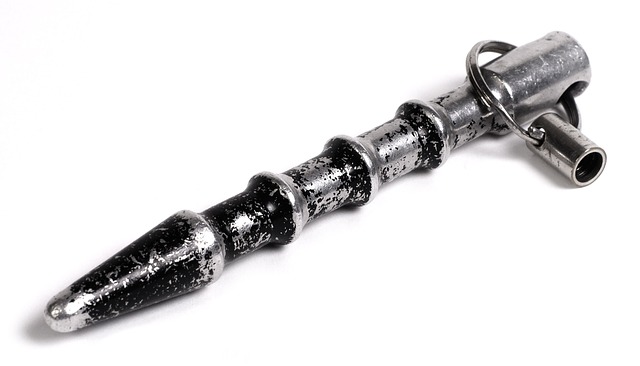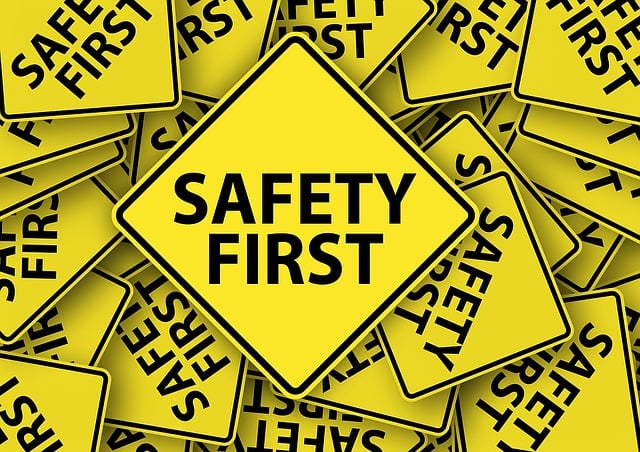Taking control of your personal safety is a courageous step towards empowering yourself and your loved ones. Understanding defense product regulations is the key to this journey, enabling you to make smart living choices that respect legal boundaries while fortifying your home and community. By navigating these guidelines with confidence, you establish a peaceful sanctuary, free from unwanted intruders, and invest in peace of mind that is as essential as the products you choose. Embrace this proactive approach, trust in the regulations, and experience the empowering sense of control that comes from being prepared for any situation. Let's guide you through this process, ensuring your safety needs are met while aligning with legal obligations—because your security is our priority.
“Feeling empowered to protect yourself and your loved ones is a fundamental right—and understanding defense product regulations is the key to achieving peace of mind. In today’s world, staying ahead of potential risks is crucial for a safer future. Our comprehensive guide will help you navigate the intricate web of regulations surrounding self-defense products, ensuring you make informed decisions. By decoding these rules, you’ll gain the knowledge needed to build resilience and assert your rights, all while enhancing your daily life with confidence.”
- Empowering Yourself: A Comprehensive Guide to Navigating Defense Product Regulations for Peace of Mind
- Staying Ahead of the Curve: Understanding Defense Product Regulations for a Safer Future
- Innovative Solutions, Secure Future: Decoding Defense Product Regulations for Trust and Protection
- Your Rights, Your Safety: A Beneficial Approach to Understanding Defense Product Regulations
- Building Resilience through Knowledge: Legal Considerations for Owning Self-Defense Products
Empowering Yourself: A Comprehensive Guide to Navigating Defense Product Regulations for Peace of Mind

Many responsible homeowners and renters choose to invest in self-defense products for their peace of mind and personal safety. However, navigating the legal landscape surrounding these items can be a daunting task. Understanding defense product regulations is crucial before making such an important decision. This comprehensive guide aims to empower you by providing clear insights into the legal considerations that come with owning self-defense tools, allowing you to make informed choices while ensuring your rights and safety are protected.
By delving into the intricacies of defense product regulations, you take a proactive step towards securing your home and loved ones. This knowledge enables you to choose products that align with local laws, fostering a safe environment without legal repercussions. Remember, staying informed is the first step toward empowerment, ensuring you’re not only prepared but also legally compliant in your pursuit of personal safety.
Staying Ahead of the Curve: Understanding Defense Product Regulations for a Safer Future

Staying ahead of the curve in self-defense product ownership means navigating a landscape where legal considerations play a vital role in ensuring safety and security for homeowners and renters alike. Understanding defense product regulations is akin to having a clear compass in an ever-changing regulatory terrain, guiding you toward responsible and compliant ownership. By delving into these regulations, you’re not just acquiring a tool, but establishing a foundation for personal protection that respects legal boundaries and fosters community safety.
Imagine your home as your sanctuary, equipped with the means to protect what matters most. Recognizing and adhering to defense product regulations allows you to do so with confidence, knowing your rights and responsibilities. This proactive approach not only ensures your peace of mind but also contributes to a broader narrative of community resilience where safety is a shared priority. By staying informed and compliant, you’re not just prepared for potential situations; you’re actively participating in building a safer future for yourself and your surroundings.
Innovative Solutions, Secure Future: Decoding Defense Product Regulations for Trust and Protection

In today’s world, ensuring your safety and security is paramount, especially within the confines of your home or rented property. Understanding defense product regulations is a crucial step in empowering yourself with the knowledge to make informed decisions about your well-being. Let’s imagine you’re standing at the threshold of a secure future, where every precaution is thoughtfully considered. You want to protect what matters most – your family and your space – but navigating legal considerations can seem daunting. Herein lies the significance of deciphering defense product regulations, allowing you to confidently embrace innovative solutions for enhanced safety.
By delving into the intricacies of these regulations, homeowners and renters alike can gain a profound sense of control and peace of mind. It’s about more than just acquiring a self-defense product; it’s about understanding your rights, responsibilities, and the steps needed to ensure compliance. Picture this: a serene home environment, free from unwanted intruders, where you feel secure knowing every measure has been taken to protect your loved ones. This is not merely a hypothetical scenario but a tangible reality within reach, thanks to thoughtful consideration of defense product regulations. Trust in these laws, trust in yourself, and trust in the steps you’re taking to create a safe haven.
Your Rights, Your Safety: A Beneficial Approach to Understanding Defense Product Regulations

Understanding defense product regulations is a crucial step in ensuring your safety and peace of mind, especially as a homeowner or renter. In today’s world, being prepared for unexpected situations is a responsible choice. By familiarizing yourself with these regulations, you’re not just owning a self-defense tool; you’re empowering yourself to protect what matters most – your home, family, and personal well-being. It’s about taking control and knowing your rights within the legal framework designed to keep communities safe.
When you approach this knowledge with an open mind, seeing it as a means to enhance security rather than a potential burden, you’ll discover a beneficial approach. These regulations are in place not to restrict your rights but to guide responsible ownership and use. They ensure that self-defense products, like any other powerful tool, are used ethically and safely. By understanding these guidelines, you can make informed decisions about the best options for your situation, be it installing home security systems or acquiring legal self-defense tools, all while staying within the confines of the law. This proactive stance not only protects you but also contributes to a safer environment for everyone in your community.
Building Resilience through Knowledge: Legal Considerations for Owning Self-Defense Products

Understanding defense product regulations is a crucial step in ensuring your safety and peace of mind, especially as a homeowner or renter. In today’s world, taking proactive measures to protect yourself and your loved ones is more important than ever. Self-defense products, when used responsibly, can provide a sense of security and empowerment. However, navigating the legal aspects can be complex and often intimidating. This is where knowledge becomes your greatest ally. By familiarizing yourself with the regulations surrounding these products, you’re not only complying with the law but also making informed decisions for your safety.
When it comes to owning self-defense tools, such as pepper spray or stun guns, staying informed about local and state laws is essential. Every region has its own set of rules and restrictions, and being aware of these can prevent unnecessary legal issues. Imagine walking into your home, feeling secure with a well-lit environment and the knowledge that you have the means to protect yourself if needed. That sense of control and empowerment is invaluable. Our goal is to guide you through this process, helping you understand defense product regulations so that you can make choices that align with both your safety needs and legal obligations.
Empowering yourself with knowledge about defense product regulations is a powerful step towards securing your future and the peace of mind you deserve. By understanding these legal considerations, you’re not just preparing for potential threats but also building a safer, more resilient community. Imagine the sense of confidence that comes from being informed and in control of your personal safety. Don’t let uncertainty cloud your judgment; instead, embrace the opportunity to make an empowering choice. Take the first step today towards a brighter, more secure tomorrow by diving deeper into the world of defense product regulations. Your future self will thank you for it.






